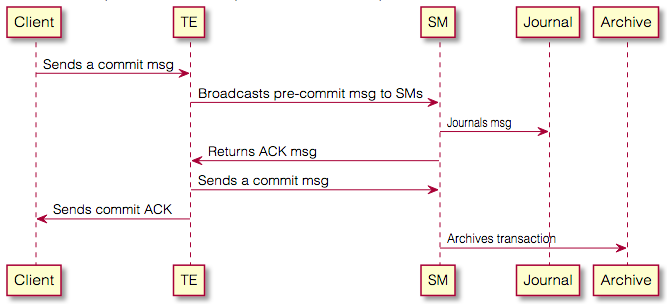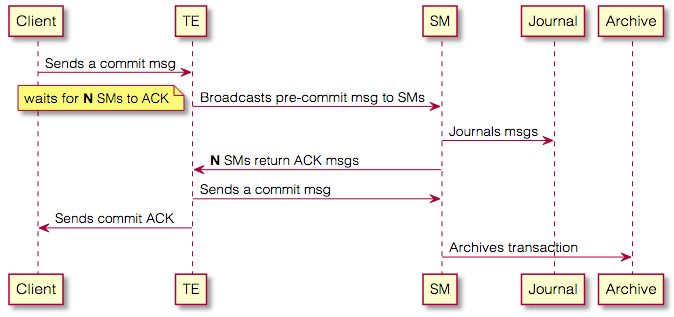About the Remote Commit Protocol
When a Transaction Engine (TE) receives a commit request, the TE asynchronously broadcasts the commit to all available nodes (SMs and TEs). Commit is the last action of a transaction to be journaled, therefore once the commit is durably stored to the journal, all actions of the transaction are durably stored to the journal and the transaction cannot be lost. The remote commit with journaling means that a commit request has been received by at least one SM process and has been journaled. An acknowledgment that a commit has been completed is sent to the client only if and when a round trip to at least one SM process has been completed.
A modified storage group is a storage group in which the transaction has inserted, deleted, or updated data serviced by that storage group.
For each modified storage group, this option specifies the number of SMs that must confirm the transaction was durably recorded before the TE reports the transaction as committed.
The TE waits for the specified number of confirmations before sending a commit confirmation to the client.
If the optional :n is not specified, then 1 SM per modified storage group is required to confirm that the transaction was durably recorded. If the optional :n is specified, then n SMs per modified storage group are required to confirm durability. This implies a minimum number of SMs in the domain.

